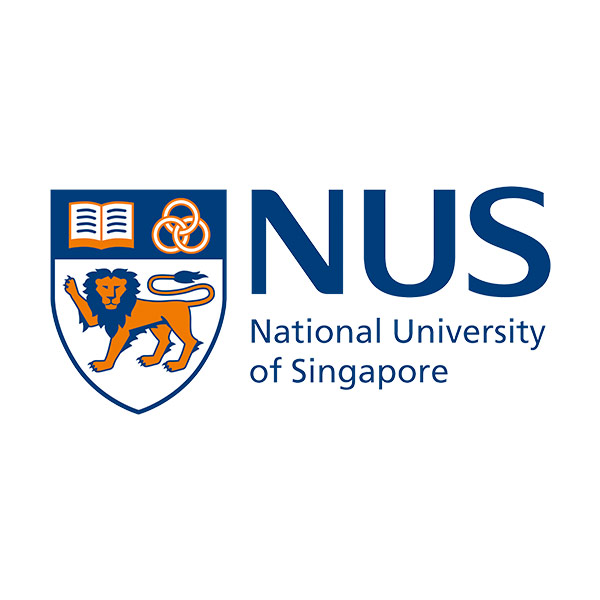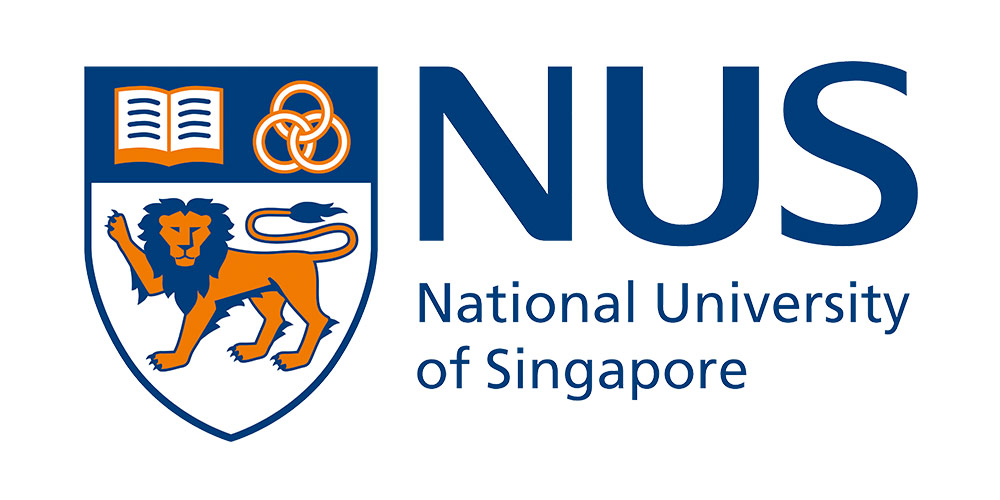NUS's engagement with technology-enhanced education dates as far back as the mid-1990s, and has continuously developed on this front over the years, as follows:
- NUS Global Campus Initiative [Mid-1990s]
- Development of IVLE [1998–2017]
- eLearning Week [2008–present]
- NUS - Coursera Partnership [2013–present]
- Work with the Global Learning Council [2014–present]
- Blended Learning and RNS Initiative [2015–present]
- The Learning Innovation Fund - Technology (LIF-T) [2012–present]
- MOE Tertiary Education Research Fund (TRF) Projects [2016–present]
- Tech Experience Day [2016–present]
- Development of LumiNUS, NUS's next generation Learning Management System [2017–present]
- Digital Assessment Initiative [2018–present]
- NUS-edX Partnership [2018–present]
- TEL Imaginarium [2018–present]
1) NUS Global Campus Initiative [Mid-1990s]
Back in the mid-1990s the University launched its global campus initiative, connecting the wired community at NUS to some of the best teaching and research resources in the world.
2) Development of IVLE [1998–2017]
NUS was an early adopter of Learning Management System (LMS) platforms, developing its own custom-built LMS, the Integrated Virtual Learning Environment (IVLE). Over the years, IVLE was updated several times to keep up with the state-of-the-art in LMS technologies. It is now being phased out in favour of a newly developed LMS (see initiative 10).
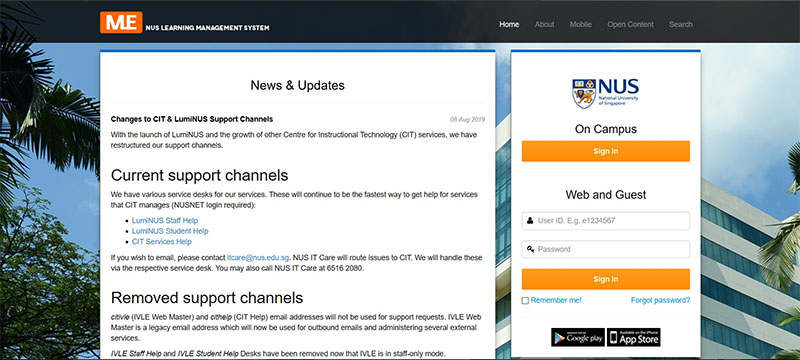 Figure 1: IVLE front page
Figure 1: IVLE front page
3) eLearning Week [2008–present]
NUS periodically conducts eLearning week exercises (i.e., a week in which all teaching is done in an online mode) to stress-test the university's ability to continue its teaching functions with minimum interruption to the students' study plans, for example in the event of a major disruption to students' and faculty's ability to be physically present on campus. The first eLearning Week was launched in 2008 and has provided the basis for eLearning and blended learning in NUS.
 Figure 2: Lightboard—a tool available for NUS faculty members to record eLearning videos
Figure 2: Lightboard—a tool available for NUS faculty members to record eLearning videos
4) NUS - Coursera Partnership [2013–present]
Thanks to a tie-up between NUS and Coursera, a leading Massive Open Online Course (MOOC) platform, in principle anyone from anywhere in the world is able to access selected online NUS courses. To date, over a quarter of a million students have registered for NUS MOOCs, who have received over 86% satisfaction ratings from global learners. Some examples of modules available under this initiative:
- Write Like Mozart: An Introduction to Classical Music Composition (intro video)
- Reason and Persuasion: Thinking Through Three Dialogues By Plato (intro video)
5) Work with the Global Learning Council [2014–present]
NUS President Tan Eng Chye is a member of the Global Learning Council (GLC), a virtual organization committed to advancing the use of science and technology to improve outcomes for learners around the world. NUS hosted the GLC's 2nd meeting and symposium in 2016. Among the projects showcased in that event were Coursemology, an online learning management system for gamification, and a collaborative project between NUS and CMU that made use of Oculus Rift—a virtual reality 3-D headset—for students to better visualise medical concepts and learn empathy by "looking through the eyes" of the patient.
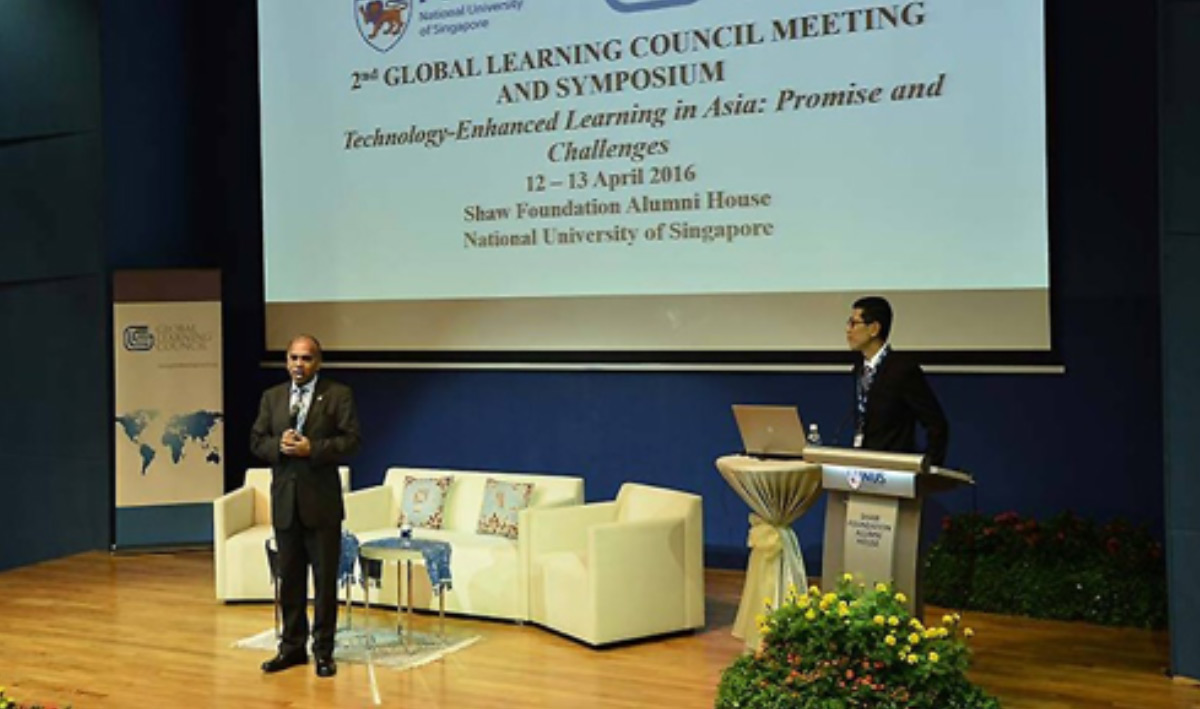 Figure 3: GLC's 2nd meeting and symposium in 2016
Figure 3: GLC's 2nd meeting and symposium in 2016
6) Blended Learning and RNS Initiative [2015–present]
The internal Blended Learning Online Courses (iBLOC) initiative is our effort to optimise teaching and learning through blended learning platforms, using both MOOC-style teaching and higher impact face-to-face interactive sessions. These blended online courses are integrated with redesigned face-to-face learning in a flipped-classroom format. Particularly noteworthy are the blended modules catering to Returning Full-Time National Servicemen (NSmen) who wish to have a head start in university education and more time to transition to academic life. NUS allows NSmen who have places reserved for them in NUS to take these modules while they are still undergoing NS. This initiative was later extended to female students and other schools, like NUS High. Some examples:
- CS1010X: Progamming Methodology (intro video)
- LSM1301X : General Biology (intro video)
7) The Learning Innovation Fund - Technology (LIF-T) [2012–present]
The Learning Innovation Fund—Technology (LIF-T), created in 2012 with an initial sum of $5 million, seeds faculty TEL projects across the institution. LIF-T has played a significant role in allowing for technology innovations at NUS and contributed in a big way to building a culture of technology-enhanced teaching and learning at the University. [more]
8) MOE Tertiary Education Research Fund (TRF) Projects [2016–present]
NUS faculty members have several projects funded by MOE TRF grants, a number of which integrate TEL. Examples:
- Visual attentional focus in expert reasoning to improve accuracy in diagnostic imaging.. PI: A/P Kelvin Foong Weng Chiong [abstract]
- VIP: Virtual Integrated Patient for exploratory learning. PI: Prof Edmund Lee [abstract]
- Solving ill-structured problems: role of scaffolding and feedback. PI: A/P Yeong Foong May [abstract]
- Promoting student performance and motivation with a growth mindset of interest. PI: Dr Paul A. O’Keefe [abstract]
- The effects of explicit instruction on graduate teaching assistants’ (GTAs) use of collaborative learning scripts and academic mindsets. PI: Dr Gan Joo Seng, Mark [abstract]
9) Tech Experience Day [2016 - present]
The Tech Experience Day is an annual event for NUS faculty members to see demonstrations and explore first-hand the latest products, technologies and projects relevant to TEL. Some examples:
-
MediSIM - Medical Simulated Interactive Manikin [A/P Erle Lim (Medicine)] [demo video]
This project uses Microsoft Hololens to create a holographic avatar superimposed on an abdominal manikin to simulate various disease states, and to teach the abdominal examination.
-
ARMolVis - Augmented Reality Molecular Visualiser [Dr Emelyn Tan (Chemistry), Mr Giam Kok Leng (NUS IT)] [demo video]
By hovering smart devices with this app over 2D photos of selected everyday products, the predominant molecule in those products will appear on the device in 3D.
NUS firmly believes that pedagogy (student learning) comes before technology. The University cannot afford to stagnate or ignore global trends in education and hence continues to experiment and innovate, finding ways gradually and continuously to integrate appropriate technology into its pedagogy, so that teaching suitably draws on technology to enhance learning.
10) Development of NUS's Next Generation of Learning Management System [2017–present]
A new next-generation learning management system (LMS), LumiNUS, in development since 2017, was launched for use by NUS faculty and students in August 2019. LumiNUS was designed from the ground up to support different teaching modes, and to provide customized learning paths as well as better time-management services for students. Unlike previous IVLE upgrades, LumiNUS is a clean break from the past.

11) Digital Assessment Initiative [2018–present]
The Centre for Instructional Technology has embarked on a campus-wide project to support online continuous assessments: small and high-stakes examinations that use a bring-your-own-device (BYOD) model. The main aim of the Digital Assessments Initiative is to enable NUS faculty to mount proctored digital assessments in any allocation. Such digital assessments are run off the students' own notebooks in an open- or closed-book secure environment. This initiative allows students to concentrate on the assessment rather than spending time acquainting themselves with an unfamiliar device. NUS faculty also receive detailed student performance analytics on the assessments.
 Figure 4: Students taking a proctored digital assessment
Figure 4: Students taking a proctored digital assessment
12) NUS–edX Partnership [2018–present]
NUS signed up as a charter member of edX in 2018. As part of this collaboration, all of edX’s more than 2000 courses from all of their more than 110 partner institutions are now available to NUS students. NUS will also be mounting some of its blended learning courses (SPOCs/iBLOCs) on the edX platform (the NUS edX portal will be called NUSx), as well as creating new MOOCs for edX. This initiative will contribute to the NUS teaching and learning environment in a number of ways:
- Our students will be able to view any edX MOOCs for personal and professional development.
- NUS faculty members will be able to make use of external edX MOOCs to flip all or part of their classes and create private online courses within NUS.
- Faculty will also be able to create MOOCs on edX for global students.
- Our students will be encouraged to use edX resources for independent, self-directed learning in an initiative called Design Your Own Module.
13) TEL Imaginarium [2018–present]
Imaginaria are places devoted to stimulating and cultivating the imagination. The NUS TEL Imaginarium showcases tech devices that support experiential learning. These include a state-of-the-art mixed-reality room and tech devices such as the Hololens, 360-degree cameras, leap motion, projection mapping and 4D Virtual reality devices, amongst many others. Technology-enhanced learning is about more than cool gadgets but must be predicated on sound pedagogical principles, and so NUS encourages faculty and students to think about how these devices can be applied to ensure deep understanding. The Imaginarium is a place for teachers and students to discover new ways in which to have fun while learning.
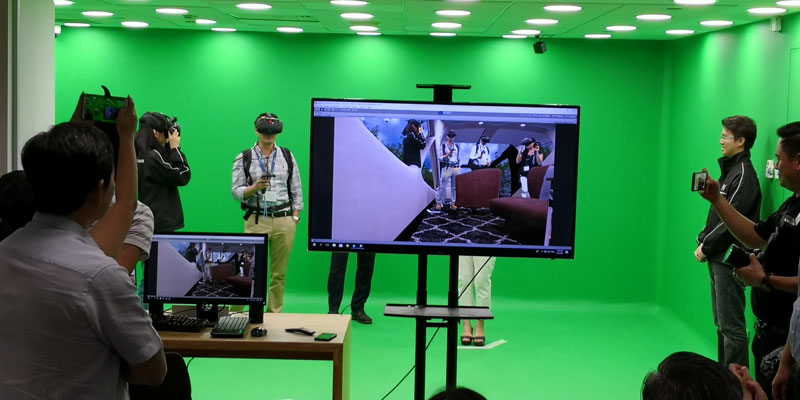 Figure 5: Student using a Hololens in the state-of-the-art mixed-reality room [more]
Figure 5: Student using a Hololens in the state-of-the-art mixed-reality room [more]
